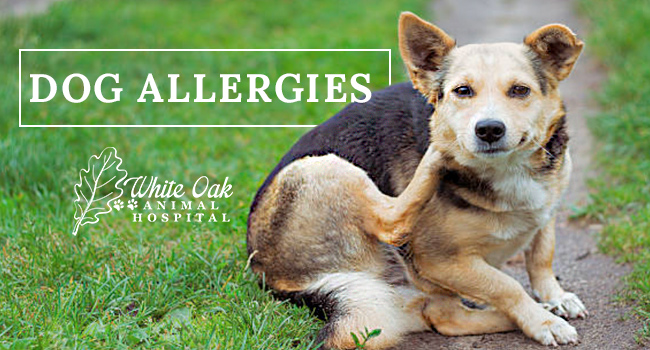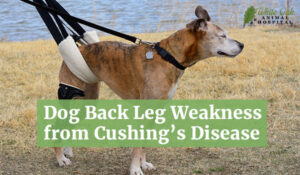
An allergic dog is easy to spot!
Sure, all dogs itch and scratch, but you know when your pup is uncomfortable.
Like people, dogs suffer from allergies for a variety of reasons.
They experience discomfort as a result of untreated food or seasonal allergies, just like us.
Luckily, pet allergies are fairly simple to diagnose and even easier to treat.
What Causes Dog Allergies?
Allergies are typically chronic conditions.
An allergy is the result of the body’s abnormal reaction to an ordinary or seemingly harmless substance.
Aeroallergens include dust mites, mold, and tree or grass pollen.
Milk, egg, soy, wheat, nuts, and fish are common food allergens.
Changing Seasons
Just like people, dogs are affected by seasonal allergies.
If your allergies are flaring up, your dogs may present as well in a similar way.
Antihistamines and herbal remedies may help.
Food Allergies
Dogs with nonseasonal allergies or chronic ear infections may benefit from a diet trial. Consult your vet to confirm if this option is recommended for your pet.
Often, the only way to diagnose food intolerance is with a diet trial using hypoallergenic dog food.
Foods commonly used in commercial dog foods, such as beef, corn, chicken and dairy, are often the source of symptoms in allergic dogs.
Fleas
Flea allergy dermatitis is a common allergic reaction to flea bites.
When dogs are allergic to fleas, one flea bite causes hot spots or hair loss.
A dog’s body responds specifically to the flea bite, not the flea itself.
After a flea bites a dog, saliva enters the bloodstream. This causes a reaction, much like a mosquito bite.
Flea allergy symptoms often include itching around the tail, loss of hair between the hind legs and licking between the back of the legs.
NexGard is a common flea bite preventative.
What Are The Symptoms of Dog Allergies?
Allergic dogs express symptoms in a variety of ways.
Symptoms often depend on the type of allergy.
Most environmental allergies present as:
- Itchy skin
- Licking paws
- Scooting
- Hotspots
- Sneezing
- Watery eyes
- Ear infections
- Licking belly.
Typically environmental allergies, such as those to grass or pollen, affect pets similarly to people.
Humans and pets alike tend to get itchy, watery eyes during the spring, for example.
Allergic dogs who run through the grass will feel itchy on their paws.
Food allergies may have some different symptoms, including:
- Coughing
- Diarrhea
- Red, inflamed skin
- Vomiting.
As in people, these symptoms often present after the food item is consumed.
Powerful Tools for Overcoming Dog Allergies
There are many quick and easy changes you can make at home to help you give your dog an edge on easing allergy challenges.
- Learn more about dog allergies.
- Switch to a Limited Ingredient Diet. PET | TAO Limited Ingredient Diet is naturally low in ingredients that stimulate an allergic response.
- Supplement with medicinal mushrooms. PET | TAO Complement Immune eases inflammatory response and allergy symptoms.
- Try digestive enzymes and probiotics. PET | TAO Harmonize GI boosts gut health and combats food allergens.
- Feed Freeze Dried Lung Treats. According to TCVM, Lung is on the same meridian as the skin. Therefore, lung treats help both breathing and skin allergies. Lung treats support lung and skin similar to a glandular supplement in a “like treats like” fashion.
- Learn more about TCVM Herbal Remedies. Chinese medicine offers many amazing natural solutions for dog allergies. Some good examples are:
Related Posts
-
What Are the Best Herbs for Arthritis in Dogs?
Herbs for Arthritis Will Help Your Dog Feel Better Arthritis hurts! And, dogs feel pain…
-
What Every Pet Owner Should Know About Pet Allergies
Whether human or pet, allergies usually prove to be a complicated, and sometimes frustrating, topic.…
-
A Must-Try Herbal Remedy for Dog Eczema and Dermatitis
Dog Eczema and Dermatitis Explained In a nutshell, dog eczema and dermatitis are itchy skin…
-
How To Deal With Dog Allergies
Dealing with dog allergies isn’t as complicated as it seems. Once you and your veterinarian…









